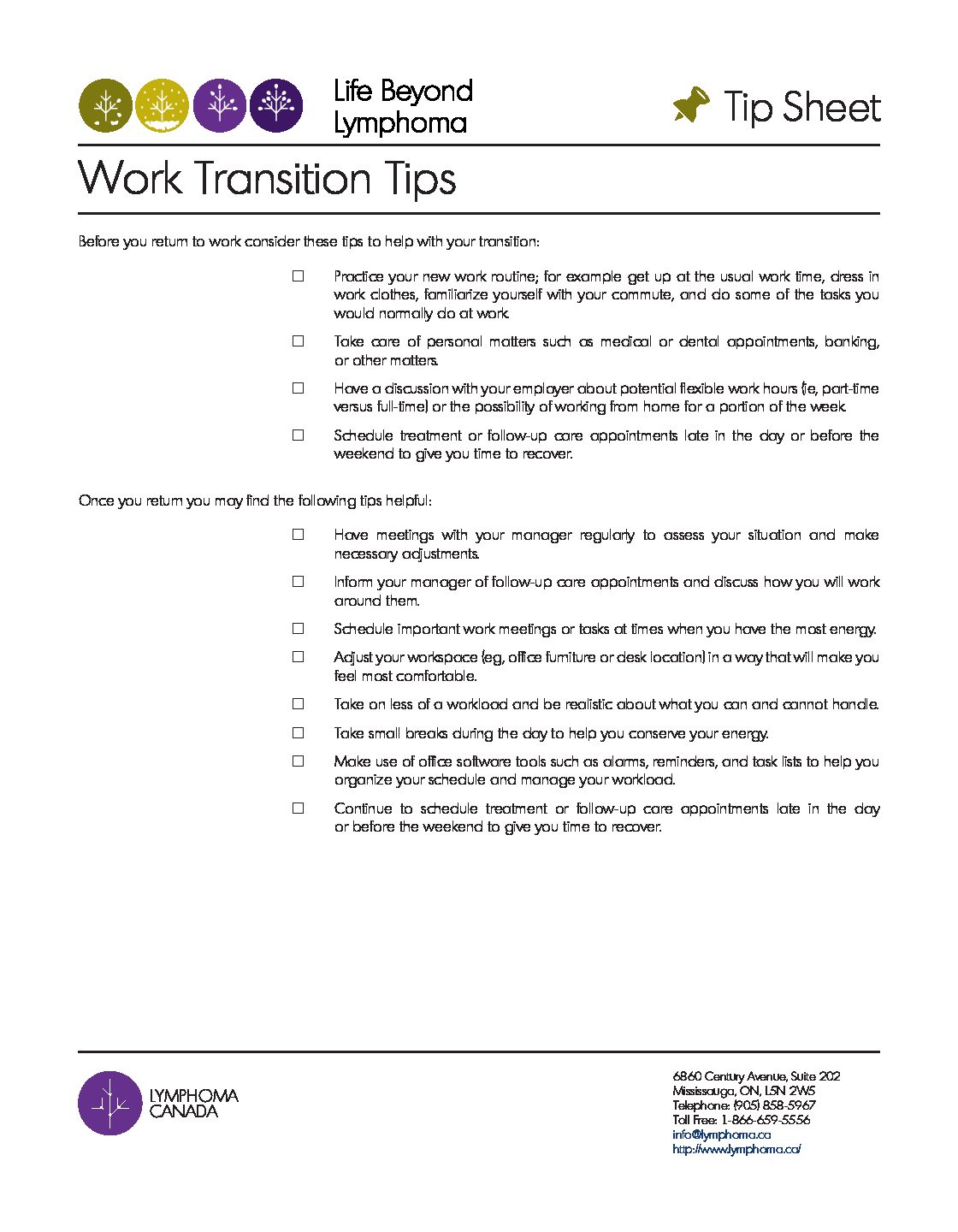Learn how Dan R. was able to find a balance between new life priorities and his career.
Once you have decided to return to work, it will be helpful for you to set up a phone call or in-person meeting with your manager or human resources department to discuss your transition plans. Your discussion may include topics such as flexible hours, accommodations, and insurance coverage. Some workplaces have formal return-to-work or disability management programs that can assist you.
Before you return to work consider these tips to help with your transition:
- Practice your new work routine; for example get up at the usual work time, dress in work clothes, familiarize yourself with your commute, and do some of the tasks you would normally do at work.
- Take care of personal matters such as medical or dental appointments, banking, or other matters.
- Have a discussion with your employer about potential flexible work hours (ie, part-time versus full-time) or the possibility of working from home for a portion of the week.
- Schedule treatment or follow-up care appointments late in the day or before the weekend to give you time to recover.
Once you return you may find the following tips helpful:
- Have meetings with your manager regularly to assess your situation and make necessary adjustments.
- Inform your manager of follow-up care appointments and discuss how you will work around them.
- Schedule important work meetings or tasks at times when you have the most energy.
- Adjust your workspace (eg, office furniture or desk location) in a way that will make you feel most comfortable.
- Take on less of a workload and be realistic about what you can and cannot handle.
- Take small breaks during the day to help you conserve your energy.
- Make use of office software tools such as alarms, reminders, and task lists to help you organize your schedule and manage your workload.
- Continue to schedule treatment or follow-up care appointments late in the day or before the weekend to give you time to recover.






